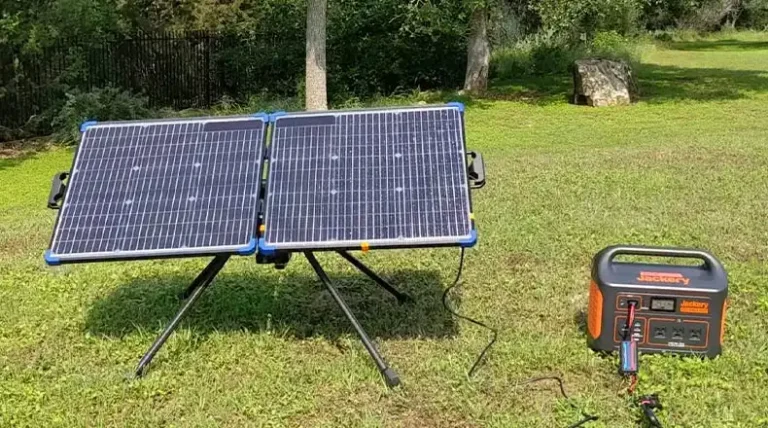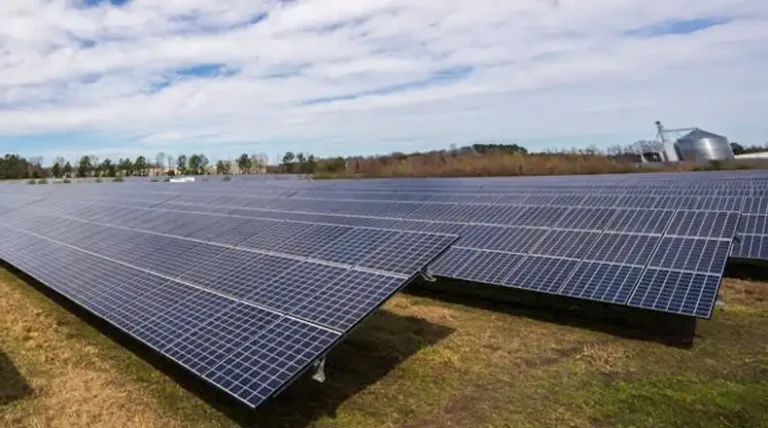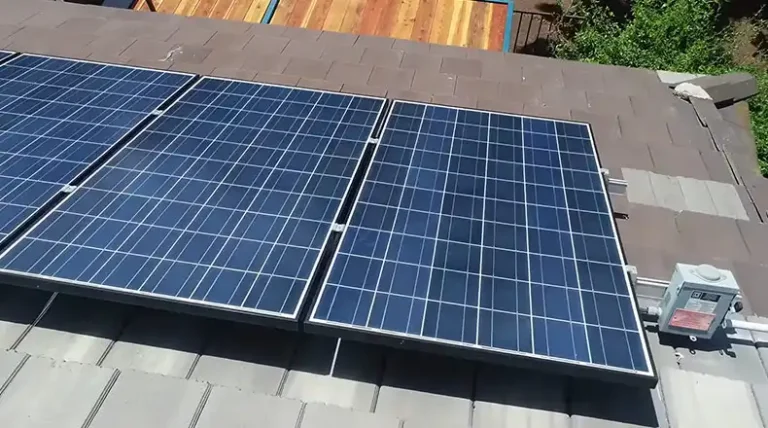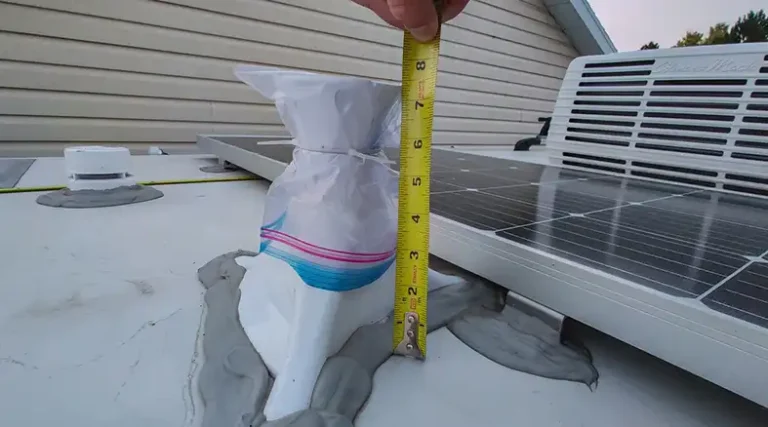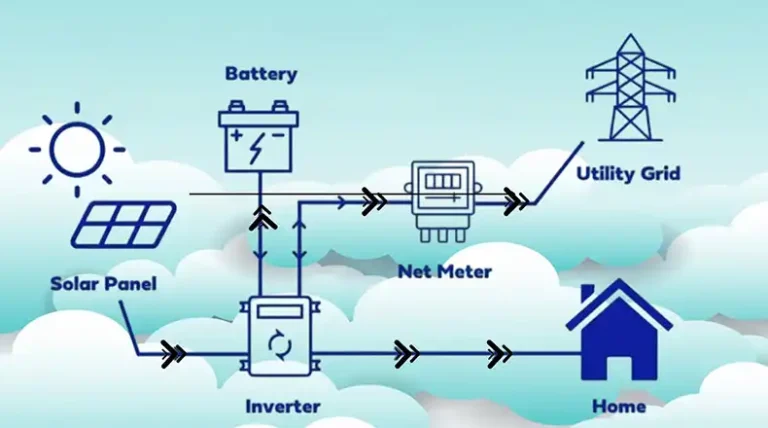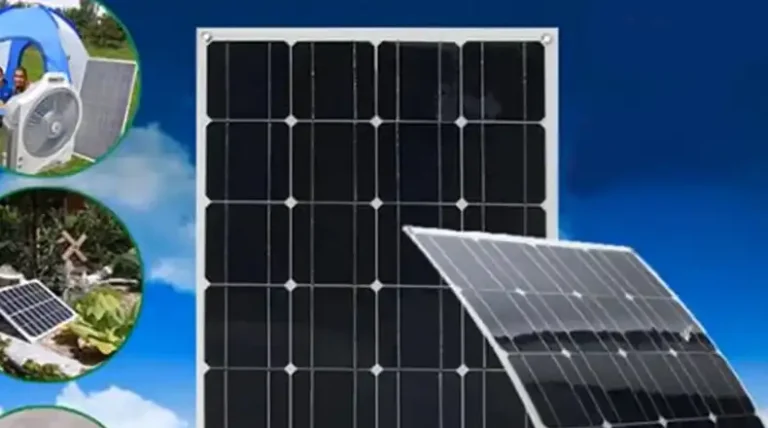Can You Clean Solar Panels with Tap Water? Easy Explanation
Solar panels are a fantastic way to harness the power of the sun and generate clean, renewable energy for your home. However, to ensure they operate at peak efficiency, you need to keep them clean. Maintaining your solar panels isn’t as straightforward as wiping down your kitchen counter. Solar panels are exposed to the elements year-round, and over time, they accumulate dirt, dust, bird droppings, and pollen.
This grime can reduce the panels’ energy output, and a drop in efficiency means a dip in your energy savings. Cleaning solar panels is essential, but the challenge is finding the right balance between effectiveness and preserving the panel’s integrity. Here’s where the million-dollar question arises — Can you clean solar panels with good old tap water?
Let’s get into the center of this sparkling topic and clear the haze.
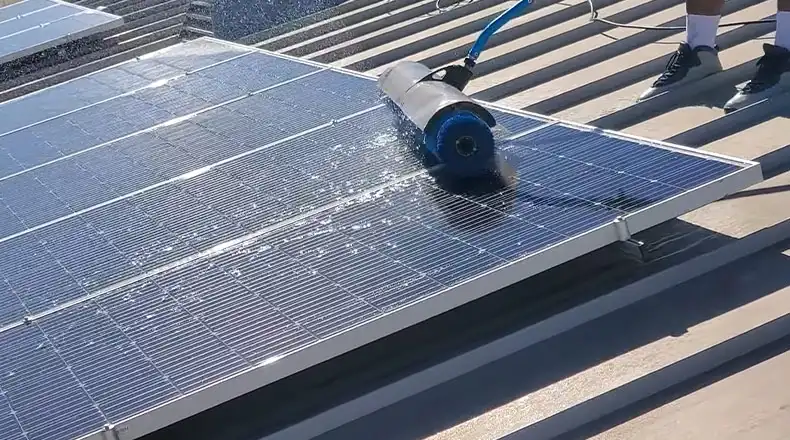
Will You Really Use Tap Water to Clean Solar Panels?
To cut to the chase, yes, you can use tap water to clean solar panels. But, and it’s a big but, the quality of your tap water matters. If you live in an area with relatively clean and low mineral-content tap water, you’re in luck. Using tap water in this case is cost-effective and environmentally friendly.
Now, here’s where things get a bit tricky. If your tap water is what’s commonly referred to as “hard water,” it contains a high mineral content, mainly calcium and magnesium. Hard water can leave mineral deposits on your solar panels after it evaporates, which can reduce their efficiency. So, while tap water is a friend, hard water can be a bit of a foe.
Use a Filter
One way to tackle the hard water problem is to invest in a water softener or a filter. These systems can remove the pesky minerals that cause those stubborn deposits.
Spot-Free Rinse
An alternative is to use tap water for cleaning and finish off with a final rinse using distilled water. Distilled water, devoid of minerals, will leave your panels sparkling and spot-free.
Caution: Avoid Detergents
While you can use tap water, steer clear of detergents. They might get rid of grime but can also leave behind a residue that scatters light and reduces efficiency.
Which Are the Better Alternatives to Clean Solar Panels?
The Magic of Rainwater
Rainwater is like a gift from nature for your solar panels. It’s usually soft and doesn’t contain the minerals found in hard water. If you’re fortunate enough to live in an area with regular rainfall, you can let Mother Nature do most of the cleaning for you.
Distilled Water
If your tap water isn’t the best choice, distilled water is like the knight in shining armor. It’s purified through a process that removes impurities, minerals, and contaminants, making it ideal for solar panel cleaning. Since it’s nearly mineral-free, using distilled water minimizes the chances of mineral buildup and streaks on your panels.
Specialized Cleaning Solutions
Several companies offer solar panel cleaning solutions specifically designed for this purpose. These products are formulated to remove dirt, grime, and mineral deposits without leaving any residue. While they might cost a bit more than water, they can be an effective and hassle-free solution.
Professional Cleaning Services
For a thorough and hassle-free cleaning, consider hiring a professional solar panel cleaning service. They have the expertise and equipment to ensure your panels shine without causing any damage.
DIY Cleaning Solutions
If you’re a DIY enthusiast, you can make your cleaning solution using a mixture of warm water and mild dish soap. Just remember to rinse thoroughly to prevent any soapy residues.
Which Water You Should Avoid to Clean Solar Panels?
A Hard “No” to Saltwater
Saltwater and solar panels don’t mix well. Salt can corrode the surface and lead to long-term damage. So, if you live near the coast, avoid using salt water for cleaning.
Steer Clear of Treated Water
Water from a water softener system, while good for drinking and other household chores, is not ideal for cleaning solar panels. It can contain residual salts, which, as we mentioned earlier, are a no-go.
Quick Tips for Cleaning Solar Panels
- Time it Right: Clean your panels early in the morning or late in the evening to avoid direct sunlight. Hot panels can develop cracks when exposed to sudden temperature changes.
- Gentle Cleaning Tools: Use soft brushes or sponges to prevent scratching the surface.
- Safety First: If you’re cleaning the panels yourself, ensure your safety with the use of a stable ladder and safety gear.
- Regular Inspections: Keep an eye out for bird nests or other obstructions that can affect your panel’s performance.
- Don’t Hesitate to Seek Professional Help: If you’re unsure about cleaning or notice any damage, consult a professional.
People Often Ask
1. Do I need to clean my solar panels regularly?
Yes, regular cleaning is essential to maintain the efficiency of your solar panels. Cleaning every 1-2 months is a good practice, but it may vary depending on your location and environmental conditions.
2. Can I use a pressure washer to clean my solar panels?
It’s best to avoid pressure washers, as the high pressure can damage the panels and their connections.
3. Can I clean solar panels on a cloudy day?
Absolutely. Solar panels still generate electricity on cloudy days, and cleaning them in such conditions is safe and effective.
4. Is it safe to walk on solar panels while cleaning?
No, walking on solar panels is not recommended, as it can cause damage. Use a ladder or reach from the ground with the appropriate tools.
5. What’s the best time of day to clean solar panels?
Cleaning early in the morning or late in the evening when the panels are cool is ideal to prevent thermal shock.
6. Can I use vinegar to clean solar panels?
Vinegar is not recommended as it can be abrasive and may damage the surface of the panels.
Final Verdict
So, can you clean solar panels with tap water? Yes, you can, but it’s not recommended. The quality of your tap water and the presence of minerals in it can make a significant difference. If you have hard water, consider using a filter or a final rinse with distilled water to keep your panels in top shape.
Remember that keeping your solar panels clean is crucial to maximizing their efficiency and prolonging their lifespan. Whether you choose to DIY or hire a professional, the reward of cleaner and more efficient solar panels is well worth the effort. Happy solar panel cleaning, and may your energy savings shine brightly!

